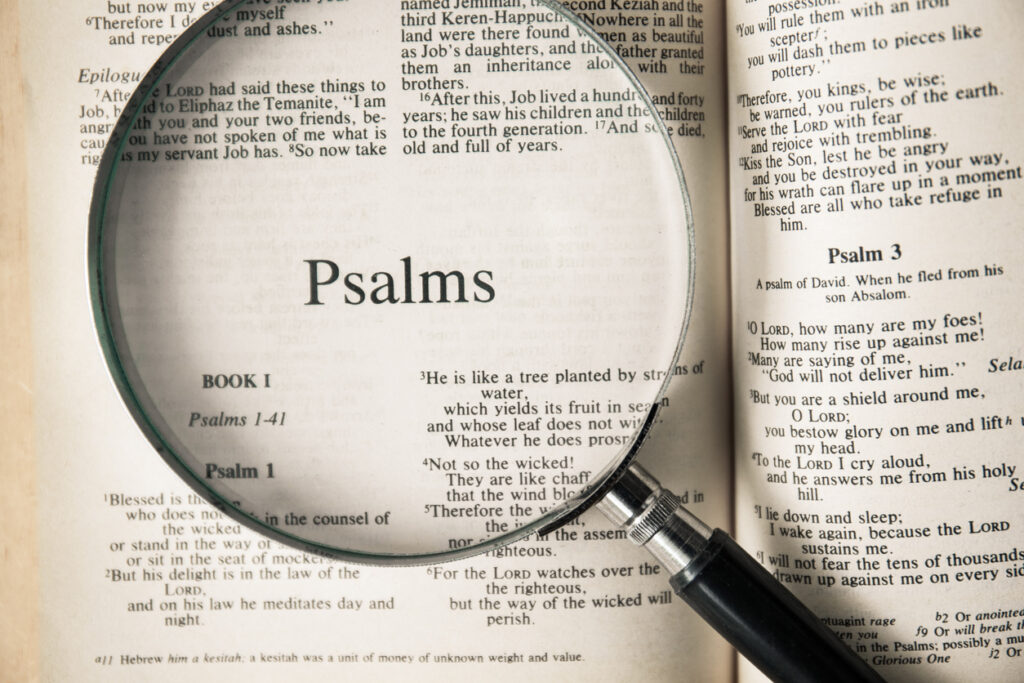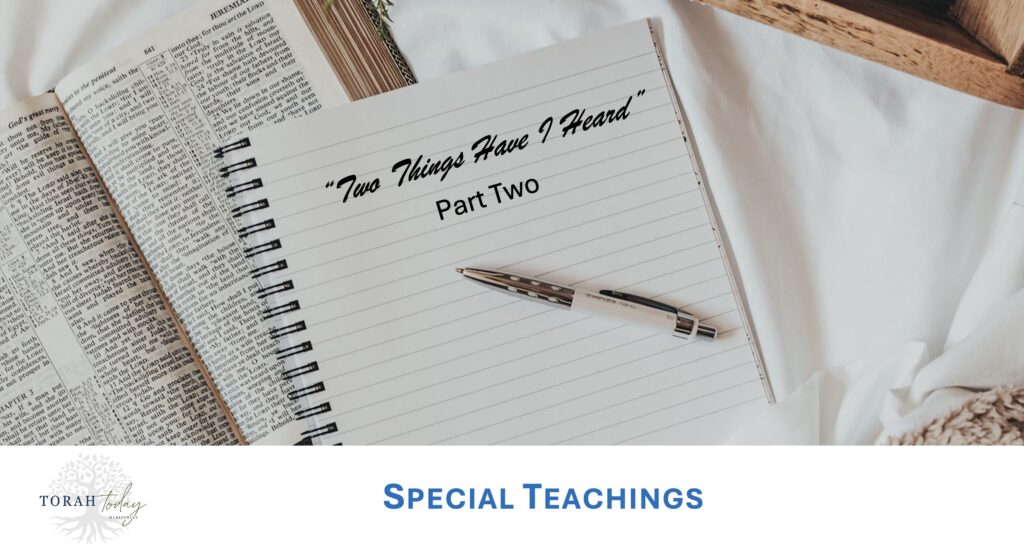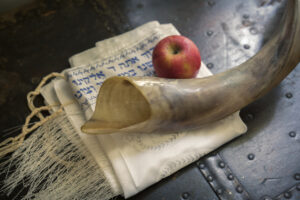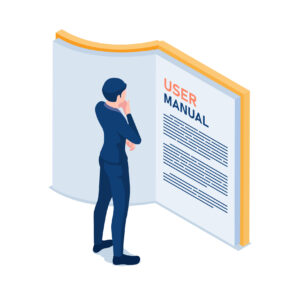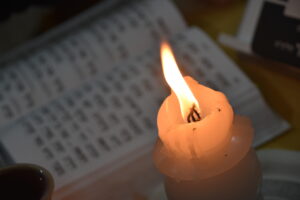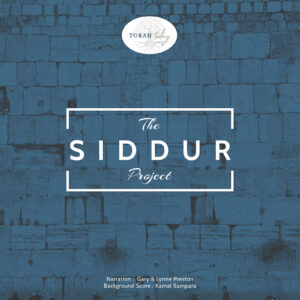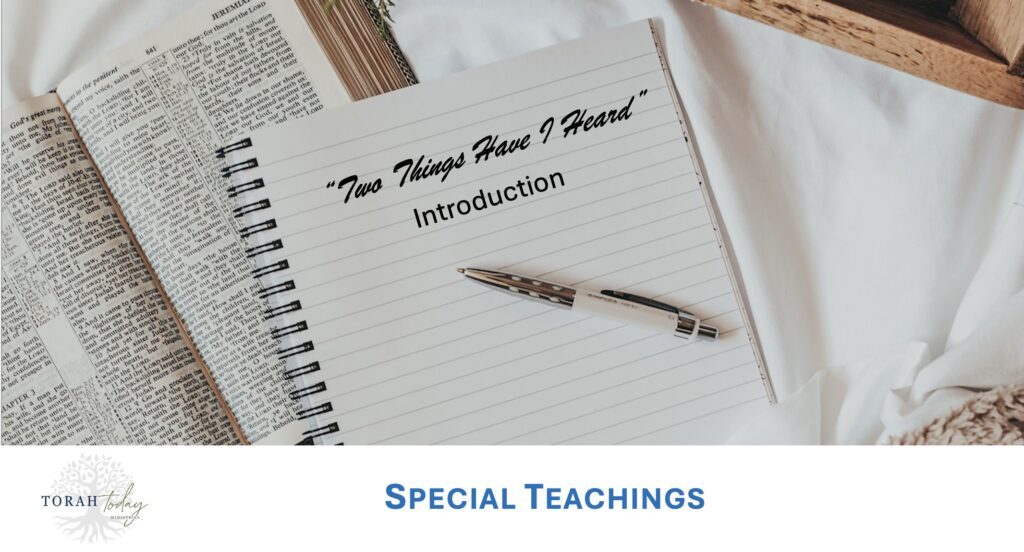(The following is a teaching Grant presented at Beth Tikkun Messianic Fellowship on Shavuot 2021.)
What do Bethlehem, the birth of David, and the birth of the Son of David have to do with Shavuot? What do they have to do with the giving of the Torah at Mount Sinai? And what do they have to do with what would later happen on Pentecost in Acts chapter two when God empowered His people with His spirit?
Let me tell you something that is unique about Shavuot. Of the seven moedim described in the Torah, Shavuot is the only one that doesn’t have a specific date. Each of the other moedim has a month and a day when it occurs, but not Shavuot.
Shavuot is tethered to Passover. Passover takes place each year on the 14th of Nissan, then the next day we begin counting – day one, day two, day three – for a full seven weeks – 49 days. Then the next day (whatever date that may be) is Shavuot. Passover and Shavuot are a package, and what happens between Passover and Shavuot is a journey. So we count each day as we draw closer to the goal and move further from where we started.
We know that the Israelites left Egypt on Passover, and each day’s travel brought them closer to the goal until finally they arrived at Mount Sinai. Likewise, each day after Yeshua is born in our hearts, after we embrace what He did on the cross and make that part of who we are, we too begin a journey. We must remember something: God didn’t just save us from something; He saved us for something. And so the 49 days between Passover and Shavuot are a journey, and this journey begins for us at the cross.
The events recorded in the book of Ruth take place during these 49 days, and she, too, took a journey, but her journey was the opposite of the journey taken by the Israelites. I want you to think about this for a moment.
According to Jewish tradition, Ruth was born into a very wealthy family in Moab. She had plenty of money. She was born into a family where there was leisure, there was ease. But when she decided to take the journey with Naomi, she left all of that behind. She left wealth to go into poverty. (The people who gleaned the fields behind the reapers are the people who have nothing.) She also left a life of ease to enter a life of hard labor.
But the Israelites left a life of crushing, difficult labor to enter a life of ease. They didn’t have to work anymore – every morning there was heavenly bread right there on the ground. Their clothing and shoes didn’t wear out. Water came from the rock. They had shade by day and fire at night. Though they were poor during their years in Egypt, they left wealthy.
Ruth’s journey was a journey that took place during the same season of the year – between Passover and Shavuot. But it was a journey in the opposite direction. The Israelites were going into the wilderness. Ruth was leaving from the wilderness (Moab) to come to Israel – to Bethlehem.
Another difference is the Israelites went out as a massive group of many thousands, but Ruth made her journey alone. True, she was with Naomi, but Naomi was going home, back to the familiar. Ruth, however, was journeying into the unknown.
What is God trying to teach us by these two journeys? I think it is this: the Israelites left Egypt not because they loved God. They left because they hated Egypt. They hated slavery. They hated the tyranny. They hated the persecution. But they hadn’t learned to love God or to trust Him yet. And when He brought them to Sinai (and the commentators all agree on this; and Jeremiah confirms it) it was a wedding where God was taking His people Israel as a bride, as a wife to Himself.[1] But as we know, it was a loveless marriage. God loved them, and everything that occurred to them was due to His love. But they did not love Him back. And, I dare say, sitting in the seats here today there are probably some of you who have a relationship with God, but it is a loveless one. You are grateful that God saved you, and that He has redeemed you, but you really don’t love Him. Loveless marriages are a dime a dozen, and loveless believers are too. But everything Ruth did—her individual journey from the wilderness to Israel, was based on one thing and one thing alone: love.
She loved Naomi. But why? What was it about Naomi? Even in her bitterness and her loss and her belief that God had abandoned her, there was something about Naomi, even in her grief, that Ruth thought, ‘I want to be a woman like that.’
I can tell you what she saw.
She saw God in her.
Whether Naomi could see it in herself or not, Ruth saw it. Whereas Ruth’s sister-in-law kissed Naomi and returned home, Ruth clung to her. She said, “I am not letting you go. I’m going with you, and you can’t stop me. And your people are going to be my people. I am leaving my people behind. I’m leaving the familiar behind. I’m leaving my gods behind. Your God will be my God. I’m leaving my home behind because I am going to live with you.” (This is probably the only case where someone wanted to live with their mother-in-law!) “I’m going to live with you, and nothing is going to separate me from you except death. And where you are buried, that’s where I’m going to be buried when I die.”
Israel’s journey from Egypt to Sinai is also our story. It’s a story of what God has done for all of us. He loved the world so much that He gave His son. There on Passover He brought redemption to the world. But Ruth’s journey is a journey that God invites each of us to take, spiritually, with Him. But you take it by yourself, and if it is not based on love, you (like Ruth’s sister-in-law) may merely kiss the Lord, turn your back on Him, and go home.
When you love someone, you give them gifts, and throughout history, when a woman married, she brought a dowry to her bridegroom – she brought her wealth as a gift for husband.
But what do we have that we can give to God? Two things. These are the only two things we truly have. They are the same two things that God gave Israel at Passover, and the same two things that Yeshua provided us through His crucifixion. Through the blood and body of the lamb, God passed the Israelites from death to life, and from slavery to freedom. When Yeshua “the Lamb of God” was crucified, He, too, passed us from death to life and from slavery to freedom.
Life.
Freedom.
These are the only two things we have to give.
In Exodus 21, God begins to give his commandments and reveal His mishpatim – his rules for living with one another, and the first of these rules is: “If a man owns a slave, the slave will work for him for six years, and then at the end of the six years the slave is to go free.” Simple enough, but then it goes on. It explains that if the slave says clearly to his master, ‘I love my master. I will not go free,’ then he becomes his master’s slave for life.
Now think about what is happening here. The slave has been set free. He now is in possession of his life and his freedom. But the next thing he does as a free moral agent is to give them both away. And who does he give them to? He gives them back to the one who had just gifted them to him. Then, the Torah tells us, his master would take him to the doorpost – the mezuzah – and pierce his ear with an awl. From then on there would be a blood stain on the doorpost and a hole in the servant’s ear.
This man who was once a slave, is now a slave again. Not because he had to be, but because he chose to be. Through Yeshua, God has given us both life and freedom, and we can hold on to our life, if we wish, but if we do, He says we will lose it. But if we let go of our life for His sake, we will find it. Only by returning it to God, can we truly safeguard it forever.
God has given us freedom. But ask yourself, what am I using my freedom for? To do things my way? Or to do things His way? The only things we can offer to God are the things He gave to us – these two precious gifts – our life and our freedom.
If you call yourself a believer yet have not formally given your life and your freedom back to the One who gave them to you, then you are a miserable person. You are an unfulfilled, unhappy, frustrated believer. I know what that is like and I never want to go back there. So I urge you on this Shavuot to take the personal journey that Ruth took – a journey that is not based on “this is what I have to do” or on trying to escape something, but on choosing to love God freely.
I invite you to say with intensity, “I love the One who gave Himself for me so that I might have life and freedom. And now that these two precious gifts are mine to give, I freely give them to God from a heart that overflows with love.”
I promise. You will never regret it!
In Acts chapter 2, after God empowered His people with His spirit, what did they do? They went out and changed the world. They decided to give their lives completely to God. Many of them died as martyrs. They decided not to use their freedom for what they wanted but for what He wanted, and they died as truly free men. And now we laud them, and we read about them, and we want to emulate them even today.
If you want your life to count, then choose to love the One who chose you and gave you everything – life and freedom – because that is all you have to give back. But you must be a Ruth to do that. Ruth is the only woman in the Bible called an Eishet Chayil – a woman of valor – the only one.[2] Think about that. She is the kind of soul that Yeshua wants for a bride. She was filled with love, with courage, and with fearlessness to move into the unknown because there was something that she couldn’t put her finger on inside of her Jewish mother-in-law.
What Ruth did was utterly illogical. It was foolishness by man’s measure. But we read about Ruth every year at Shavuot, and her story ends with her becoming the great grandmother of King David. This gentile woman from Moab became one of the ancestors of Messiah Himself.
Don’t play games anymore. If your relationship with God has been a loveless one, it is in your power to change that.
Do it today, on this Shavuot.
[1] Jeremiah 31:31-32
[2] Ruth 3:11. (Read Proverbs 31:10-31 for a description of a woman of valor.)

